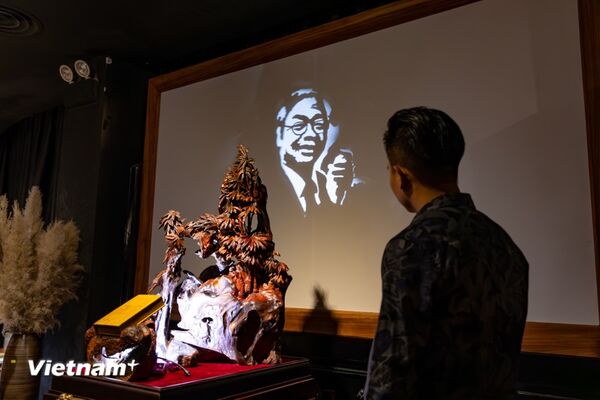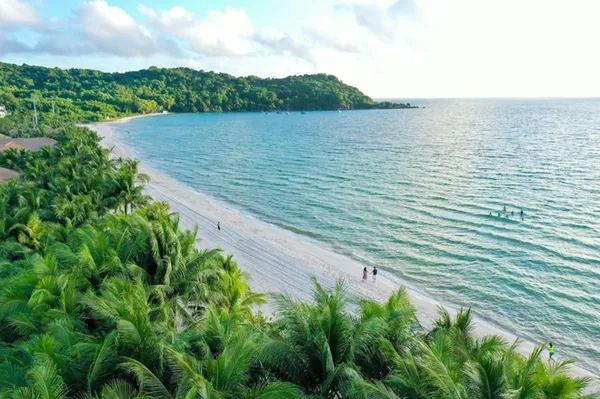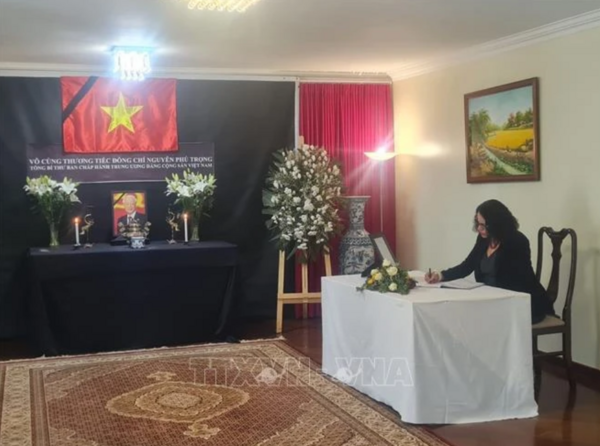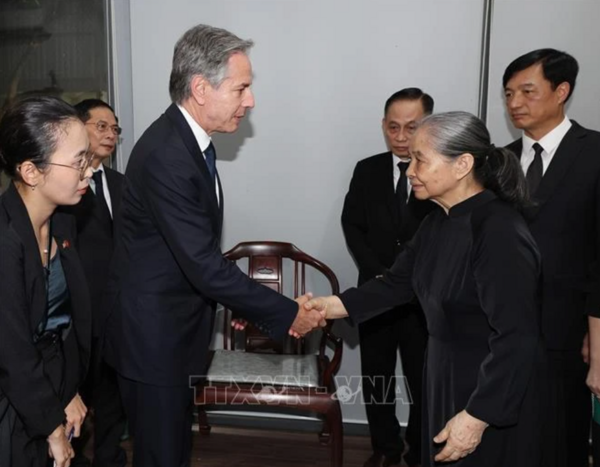 |
| More than 5,000 people join in a walk in support of AO/dioxin victims on the occasion of the Action Month for Victims of AO/Dioxin in August 2023. (Photo: VNA) |
HCM City (VNA) – Despite the three previous rejections by courts in the US, the Vietnam Association for Victims of Agent Orange/ Dioxin (VAVA) is suing US chemical companies that supported the US military to spray AO/dioxin in Vietnam during wartime, VAVA Vice President Maj. Gen. Nguyen Hong Son said on July 30.
He said that for the last nearly 20 years, VAVA has repeatedly submitted petitions to courts in the US regarding the US army's spray of toxic chemicals including AO/dioxin in the Vietnamese territory, which has led to serious consequences.
However, the US military has just conducted environmental remediation of dioxin contamination in some severely impacted areas like Bien Hoa airfield and Da Nang airport. Meanwhile, it doesn’t accept the responsibility for caring for AO/dioxin victims’ health, saying Vietnam’s requests are groundless, Son noted.
Therefore, Son continued, VAVA decided to sue the 37 US chemical companies that supported the US military to carry out the sprays during 1961 - 1971 to force them to bear the responsibility for their crime.
VAVA reported that from 1961 to 1971, the US military conducted 19,905 missions spraying more than 80 million litres of toxic chemicals, 61% of which was AO containing 366kg of dioxin, on nearly 26,000 hamlets and villages that covered 3.06 million hectares, equivalent to almost one-fourth of the area of southern Vietnam. Up to 86% of the area was subject to more than two times of spraying, and 11% over 10 times.
AO has caused strong and enduring impacts on the environment and human health. About 4.8 million people in Vietnam were exposed to AO/dioxin, statistics showed.
The association cited studies in Vietnam and the world as finding that AO/dioxin is able to cause diverse and complicated injuries on all organs of the body while triggering genetic and chromosomal mutations that result in innate deformities and birth injuries. In particular, AO/dioxin could be hereditary for many generations.
In Vietnam, AO effects have reached the fourth generation. There are about 850,000 victims in the second generation, 350,000 others in the third generation, and about 500 in the fourth generation in the country at present, according to VAVA.
In HCM City alone, there are more than 20,000 victims of AO/dioxin, and many families have two or three victims suffering from serious disabilities.
The city’s association for AO/dioxin victims have carried out various activities over the past years to assist the victims and their families such as helping to build houses, providing health services and wheelchairs, and granting scholarships. It is accelerating the construction of a village that will give nursing and vocational training for AO victims, said president of the local association Maj. Gen. Tran Ngoc Tho./.





